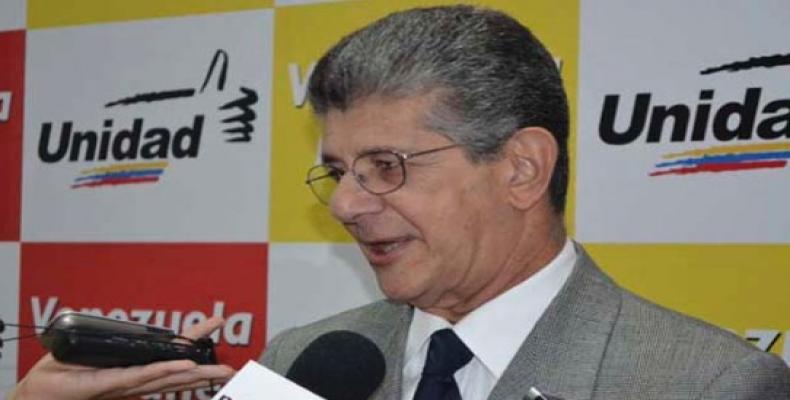Caracas, January 5 (RHC)-- Henry Ramos Allup, a veteran politician from one of the two traditional parties that ruled Venezuela before the Bolivarian Revolution, has been elected president of the new opposition-controlled National Assembly.
The controversial figure, closely associated with the old-guard of politicians, hails from the Democratic Action party, one of two parties that would alternated power for 40 years between 1958-1998 after having signed a formal agreement -- the “Punto Fijo” pact -- which effectively made Venezuela an exclusionary democracy.
The system was only ended with the election of the late Hugo Chavez as president in 1998. Chavez had campaigned specifically on ending this style of government under what was known as the Fourth Republic. Upon winning, Chavez called a constituent assembly that drafted one of the most progressive constitutions in the world, which was ratified by Venezuelans in 1999 through a referendum.
Shortly after being elected December 6th, Ramos Allup criticized the 1999 constitution, calling it a “disaster,” and signaling his desire to have it reformed. He praised the 1961 constitution that allowed only two parties to govern as “civilized.”
Ramos Allup has stated that the main priority of the new National Assembly is “a change of government,” referring to the stated goal of opposition legislators to remove President Nicolas Maduro from power. During the campaign, however, he and his party promised to address economic issues, something opposition leaders have been now looking to distance themselves from.
Despite being the current vice president of the Socialist International, Ramos Allup is a long-time critic of the leftist Venezuelan governments and served as a lawmaker for four periods during the Fourth Republic. As a congressman, he defended the neo-liberal policies of then President Carlos Andres Perez, which led to the social unrest known as the Caracazo in 1989.


